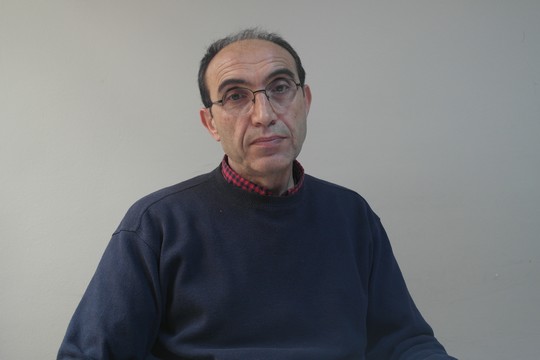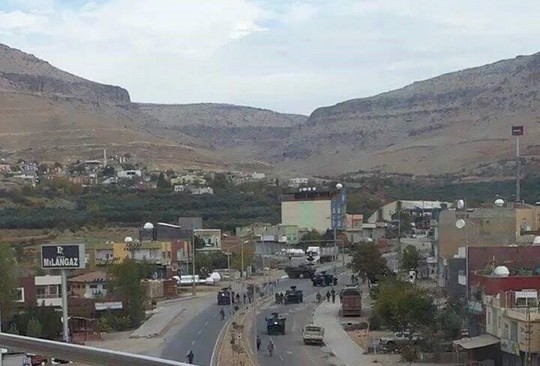Despite President Erdoğan’s control over the Turkish media and political persecution of minorities, the pro-Kurdish ‘Peoples’ Democratic Party’ has managed to become the third largest party in the country’s parliament. Günay Kubilay, one of its highest-ranking members speaks to +972’s Hebrew-language sister site, Local Call, about incitement and violence, Turkey’s disintegrating democracy, and the link between the Kurdish and Palestinian struggles.
By Avi Blecherman (translated by Danielle Alma Ravitzky and Saar Yahalom)
I arrived at the headquarters of the Peoples’ Democratic Party in Ankara after a short taxi ride. “You’ll see how it’s hard to miss the small and somewhat hidden street you’re looking for, thanks to all the police checkpoints,” the driver explained. And rightfully so.
Police vehicles, dozens of policemen, and tall roadblocks closed off the street, creating a feeling of asphyxiation. On the side parked a riot control truck, the kind I first met when the government sought to suppress the protests in Gezi Park in the summer of 2013, with its water cannon just waiting for a reason to go be used.
It seemed that more than providing security for the party’s headquarters’ workers or attendees, the police were there as a threat — to create a deterrence. “All the many policemen and checkpoints didn’t really help us that evening a few months ago when an incited right-wing mob set fire to our building while the police stood idly by,” tells me Günay Kubilay, a deputy chairman of Turkey’s radical left Peoples’ Democratic Party (HDP), during our interview.
One of the policemen signals us to open a window and asks where we were headed, curiously examining me. In my head I already see how everything will end and my heart started pounding. A foreigner — an Israeli journalist — arriving at the headquarters of the party whose members are constantly accused of encouraging terror in the country that holds the world’s record for imprisoning journalists. The driver came to my rescue and simply replied: “to the HDP party headquarters.”
After a moment of silence that felt like eternity, the checkpoint opened up and we were allowed through. I wanted to take a picture of the besieged street, but I remembered well how unfeasible it is to take that risk with the Turkish policemen, for whom free press is the least of their concerns.
This is the face of Turkey nowadays. A doubtfully democratic country, under increasing oppression.
The party of the transparent
The Peoples’ Democratic Party (HDP) was the surprise winner of Turkey’s elections, when last June it managed to do the impossible and entered the parliament for the first time. It managed to deny President Erdoğan’s Justice and Development Party (AKP) the majority it had gotten so used to, which had allowed it to rule without the need for a coalition.
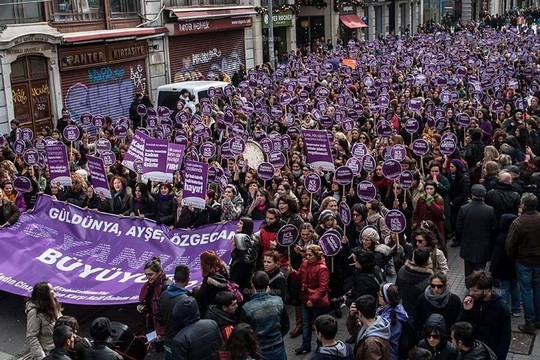
The HDP had to pass an intimidating election threshold of 10 percent — a bleak inheritance from the days of the military coup in the 1980’s, which was created for the exact purpose of ensuring the Kurds and other left-wing parties were kept out of the parliament. And the HDP is just that: a fundamentally Kurdish party that has expended its platform and ranks to social activists, feminists, LGBT and more. Numerous commentators have compared the act of its formation and success to that of the Joint List in Israel.
What suddenly caused nearly six million Turks, not exclusively Kurds, take a risk and vote for this party? Why has this triumph created such a fierce political turn that caused President Erdoğan to decide on holding snap elections last month? How did it cause the collapse of the peacemaking process with the Kurds and the renewal of the fighting with the Kurdistan Worker’s Party (PKK) while sweeping the whole country into a period of instability, increasing polarization, incitement and violence? On all these matters and more I sought to speak with Mr. Kubilay.
For the benefit of the international reader who doesn’t quite know the Peoples’ Democratic Party, what are the differences between your party and other parties?
“The prominent difference between us and other parties in Turkey is that the politics of all the other parties is based on various kinds of exclusion. Thus, for example, for every other party Turkeyism is conceived as the sole legitimate nationality, Sunni Islam is conceived as the sole Islamic practice, and in general many groups and identities that together make up the Turkish society are simply shut out of the political game.
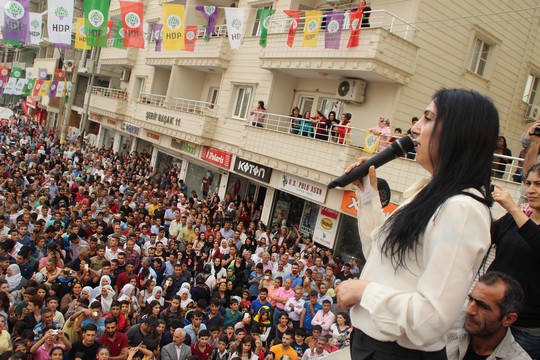
“Unlike all these other parties we at the HDP represent that variety of excluded groups, including Kurds, Alevis, Armenians, Yazidis, women, workers, immigrants, the LGBTQ community and others. The Peoples’ Democratic Party is basically the only valid alternative for seekers of peace, liberty, justice, civil equality and democracy in Turkey.
“And indeed in the general elections in Turkey last summer we were able to surpass the impossible election threshold and win the trust of over thirteen percent of the voters, bringing into the Turkish parliament 80 representatives and voices that until than weren’t represented.”
I remember the overflowing joy, especially in Diyarbakir — the Kurdish region capital — that election night. But the euphoria didn’t last long. The government and part of the media accused you of supporting terror, the country entered a new round of elections and you lost about a million votes and your parliamentary power weakened. What happened exactly?
“President Erdoğan and the Justice and Development Party had a hard time accepting the result that changed the political map and in fact pushed them out of a state of a frightful one-party rule. They decided to declare war on us and on the voters’ call, and lead almost immediately to another round of elections in hope of rectifying their defeat. Their behavior since the results were announced has been illegitimate and contradicts morality. To be honest it kind of worked for them. Although it is important to stress that they weren’t able to push us out of the parliament and we were still able to clearly pass the election threshold.
“It is important to understand that after the elections in June, the political atmosphere in Turkey changed fundamentally. The president forced on the Turkish people a redundant war and a state of instability that were meant to influence the results of the snap elections, and of course to push out the Peoples’ Democratic Party, whose election to the parliament weakened his party. One of the most extreme steps he took was to freeze the peace process that was emerging with the imprisoned Kurdish leader, Abdullah Öcalan.
“The peak came with the rejection of the Dolmabahçe agreement, signed between the sides a year earlier at the end of prolonged negotiations, and opening a military assault on Turkish Kurdistan and Kurdish bases in Iraq, which became an outright war between the Turkish army and the PKK (designated a terrorist organization in Turkey, A.B.). In practice they declared war on us as well.”
What do you mean by ‘declared war?’
Over 200 of our buildings were attacked during these months, including the torching of the headquarters we are in now. A similar number of citizens were wounded by the violence of a mob incited by the government. In addition to the violence that we endured, the public space had also become a dangerous space for assembling and freedom of speech.
Two major suicide attacks attributed to ISIS harmed the public that came together to protest this situation. One on July in Suruç, adjacent to the town Kobanî on the Syrian side. A socialist youth group that sought to cross the border and help rebuild the town Kobanî was attacked by a suicide bomber, killing dozens. A second attack took place in Ankara in October, during a peace rally where over a hundred were killed and hundreds of others were wounded. In both these cases, there was a harsh feeling of state indifference at best, and turning a blind eye at worst.
In order to understand the size of our accomplishment, it is important to understand that the last elections were conducted when a war was raging outside and when the government — through its tightening control over the media — imposed an outright embargo on our coverage, forbidding us from reaching our constituents. In fact, we won these elections almost without running a campaign. Think about it: despite a loss of almost a million votes we became the third largest party, and the re-elections results may have brought Erdoğan his parliament majority, but still prevented him from implementing the constitutional revisions he is interested in.
“The claims that are raised against us — that we aren’t making a loud enough call regarding the war on the Kurdistan region (thus indirectly supporting terror, A.B.) — are simply not true and constitute a part of the incitement against us. Perhaps the most important element, on which our politics is based, is the element of striving for peace as a strategic choice. When the war began in July, the HDP consistently called on both sides to mutually lay down their weapons and return to negotiations.”
Didn’t you see any option of joining the Justice and Development Party and to try to influence from within? Maybe by doing so the bloodshed and the collapse of the peace process could have also been averted.
“It is important to understand that Erdoğan is just not interested in expanding democracy in Turkey. It just isn’t part of his politics, and so from his point of view he does not need peace. On the contrary, he needs war and instability. Therefore there wasn’t really any chance of forming a coalition of us with his party, because there was nothing to agree on.”
Are you worried for the wellbeing of your party’s leaders and the other representatives in the parliament?
“As far as we’re concerned the political responsibility for all that is happening belongs to the government and its leader, Ahmet Davutoğlu. It is generally important to understand that there is a profound problem of political security in Turkey: the attacks aren’t targeted only at us. In the current reality, whoever talks about peace, liberty or democracy — and who doesn’t go along with Erdoğan’s hate and polarization politics — becomes a target. There is a sensation of a return to dark era of the Counter-Guerrilla, days of unsolved political assassinations.”
What is your stance regarding what is happening in Syria and Iraq today, especially in the Kurdish territories? What is the resolution you hope for in Syria and the Kurdish question? Do you have any expectations from the international community?
“Let us first start from our expectation from the international community. We expect all democratic forces wherever they are to stand in support and collaborate with the Kurdish people, and to support our demands and our legitimate struggle for liberty and self-determination. It is important to understand that what is called the “Kurdish Problem” or the “Kurdish Question” is beyond the interest of one state: it is a question with both local and regional aspects that influence one another. Each one of the states has different and unique political and social characteristics, so the solutions within each state (Turkey, Syria, Iraq and Iran – A.B.) will have to be based upon the unique dynamic in each state.
“What is taking place now in the Rojava area, the motherland of the Kurds in Syria, has great influence over the situation here in Turkish Kurdistan. If Syria will eventually be able to move toward a democratic political solution, and Rojava’s status is recognized by the international community, it will have meaning for us, and vice versa. Therefore our stance is that what is needed in Syria is an agreed upon solution that will put an end to the civil war and the horrendous suffering, and of course international recognition of an independent Rojava is needed.
“As for the Kurdish question in Turkish Kurdistan, the solution for that is the establishment of a new, democratic constitution and a profound plan for a true democratization of Turkey. We strive for that. The Kurdish people here do not necessarily want a state or a territory. We need the ability to educate our children in our mother tongue, in Kurdish, and live here as equal citizens, and as in every democratic country, the Kurdish people in Turkey must control their destiny and regain self-governance that will be agreed upon.”
Learning from the popular struggle
During the interview with Kubilay, I had a hard time avoiding the inevitable comparison between Turkey and Israel. I closely follow what has been happening in Turkey since the Gezi protests broke in the summer of 2013, which I covered from Istanbul. It was hard to miss the growing state oppression; the attacks on freedom of speech and unionizing; the increased incitement; the exclusion of minorities; and the intensifying sectarian politics of hate and fear.
The thought of similar or parallel processes that go on in Israel is spine-tingling. The growing incitement toward the Arab members of Knesset and the continuing attempts to harm the basic rights of Israel’s Arab citizens; the increasing erosion of freedom of political expression; the strengthened tyranny of the majority; the fear casting over the courts and the media; the fueling of self-righteousness; the increasing use of state violence while encouraging citizens to use violence as well. I sometimes feel that the Turks might be a step or two ahead of us, but our routes are similar. With a little more effort and diligence we will get there. It is a disturbing, unsettling thought.
To end the interview, I ask Kubilay about the Peoples’ Democratic Party stance regarding what is happening in Israel/Palestine, and about the possible links between the two places.
“We are opposed to militarism, sectarianism, hegemonies politics and oppression wherever they are. The co-existence in full civil equality of all groups and people in the Middle East is at the core of our beliefs. Of course we support the establishment of an independent Palestinian state. My generation, the slightly older one, followed the Israeli-Palestinian conflict and the Palestinian liberation movement with great interest back in the 70s. Even during the time of Yasser Arafat, we felt the lively and invigorating power of the resistance to the occupation and didn’t make do with supporting it from afar. I can tell you that quite a few activists went over to Palestine to support the struggle, to strengthen their spirit and to learn from the Palestinian popular struggle for ours here as well.
“We got a lot of inspiration from the Palestinian Intifada, especially the popular struggle, which included many democratic and revolutionary elements, including ideas of communism and socialism, secularism, practices of self-management and a demand for self-governance.
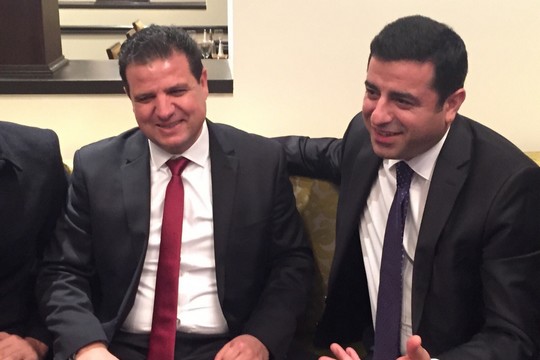
“One of the valuable things we have learned from the Palestinian struggle is that a movement whose roots aren’t popular, whose heart is not the people themselves, will not be able to conduct such a prolonged struggle for over 60 years, the way the Palestinian liberation movement has conducted against Israel’s oppressive policies. Even in our area, the Turkish army is big and powerful, and our struggle against oppression would not have been possible for nearly 40 years had we not used these practices of popular, democratic, communal struggle, one which puts people at its center.
“This can be seen, for instance, in the heroic struggle in the Rojava area, where the Kurds have reached a very high level of democratic and popular self-management, and the only group that can really face the powers of ISIS. You could definitely say that for the most part, the Palestinian liberation movement and the Kurdish liberation movement are both the only secular movements in the Middle East. The prolonged suffering of the Palestinian people under the state oppression is very similar to the suffering of the Kurdish people in Turkey. Both nations are struggling against exclusive, forceful, nationalist and racist regimes, and demand their freedom and their right to self-govern. We extend our hand for tighter cooperation with the Palestinian people, and the rest of the peace and democracy-seekers in our region.”
Avi Blecherman is an activist and journalist. This article was first published in Hebrew on Local Call, where he is a blogger. Read it here. Follow him on Twitter: @yomgashum

